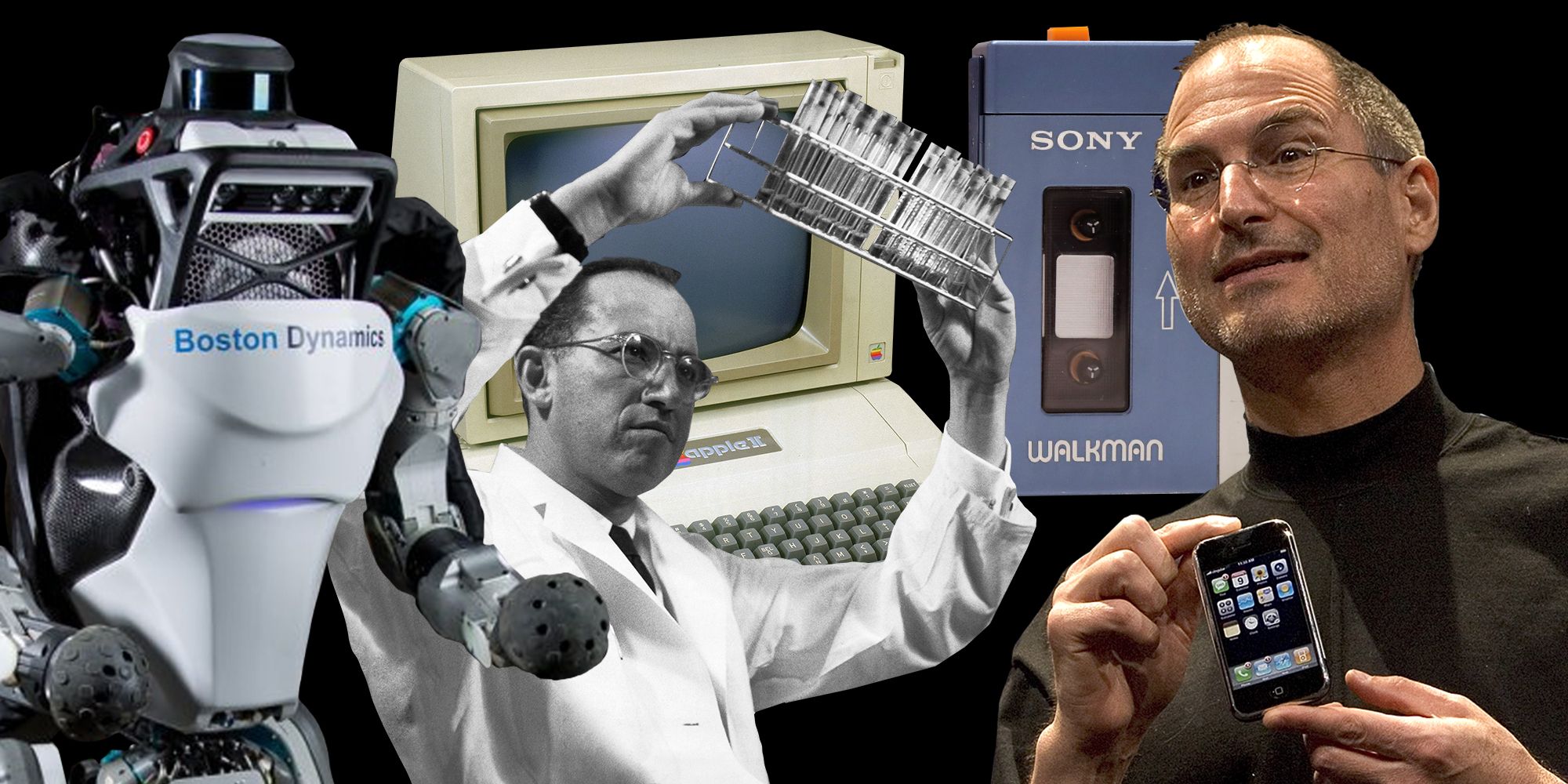
Since the dawn of human civilization, inventors have been driving progress and transforming the world around us. From ancient tools to modern technology, inventions have shaped every aspect of our lives. Whether it’s the electric light bulb, the internet, or the humble paperclip, inventions have revolutionized the way we live, work, and communicate.
In this article, we will delve into the fascinating world of inventions and explore ten intriguing facts that you may not know. From accidental discoveries to groundbreaking innovations, these facts will give you a deeper appreciation for the ingenuity and creativity of the inventors who have changed the course of history.
Key Takeaways:
- Inventions have transformed human history, from fire to the internet, shaping the way we live and communicate.
- Curiosity and problem-solving drive inventors to create new things, but inventions can also have unintended consequences.
Inventions have shaped the course of human history.
From the wheel to the internet, inventions have revolutionized the way we live, work, and communicate.
The discovery of fire was one of the earliest inventions.
Fire transformed human civilization, providing warmth, protection, and a means for cooking food.
The printing press, invented by Johannes Gutenberg in the 15th century, revolutionized literacy and the spread of knowledge.
For the first time, books could be produced quickly and affordably, leading to an explosion of information.
The telephone, invented by Alexander Graham Bell in 1876, revolutionized communication.
It connected people across long distances, paving the way for instant voice communication around the world.
The invention of the light bulb by Thomas Edison in 1879 transformed the world of illumination.
Gone were the days of relying on candles and oil lamps, as the electric light bulb brought brightness to homes and cities.
The invention of the airplane by the Wright brothers in 1903 revolutionized transportation and travel.
It made the world a smaller place, allowing people to fly across continents in a matter of hours.
The invention of the internet in the late 20th century changed the way we access information and communicate.
It brought the world to our fingertips, connecting people from different corners of the globe.
Invention is often fueled by curiosity and the desire to solve problems.
From Einstein’s theory of relativity to Steve Jobs’ iPhone, inventors strive to push boundaries and create something new.
Inventions can have unintended consequences.
While many inventions have brought positive change, they have also had negative impacts on the environment or society.
Inventions have the power to change lives and inspire future generations of inventors.
From medical breakthroughs to technological advancements, the impact of inventions on our world is immeasurable.
Conclusion
Inventions have played a significant role in shaping our world, from ancient times to the modern era. They have improved our quality of life, revolutionized industries, and transformed the way we live, work, and communicate. The 10 facts about inventions mentioned in this article are just a glimpse of the vast array of human ingenuity and innovation that has brought about remarkable changes throughout history. As we continue to progress, it is essential to recognize and appreciate the impact that inventions have on society, and to encourage and support the brilliant minds that continue to push the boundaries of what is possible.
FAQs
Q: Who is considered the greatest inventor of all time?
A: There have been many remarkable inventors throughout history, but one of the most widely recognized is Thomas Edison. His numerous contributions, including the invention of the phonograph and the practical electric lightbulb, have had a profound impact on modern society.
Q: What is considered the most important invention ever made?
A: The most important invention ever made is often debated, but arguably, the internet is considered one of the most groundbreaking inventions. It has revolutionized communication, access to information, and the way we connect with others globally.
Q: What is the oldest known invention?
A: One of the oldest known inventions is the wheel, which dates back over 5,000 years. The wheel revolutionized transportation and became a fundamental component in various industries and technologies.
Q: How do inventions contribute to society?
A: Inventions contribute to society by addressing needs and problems, improving efficiency, and enhancing the overall quality of life. They can lead to advancements in healthcare, communication, transportation, and various other areas, making our lives easier and more convenient.
Q: Are all inventions patented?
A: Not all inventions are patented. While patents offer protection to inventors by granting them exclusive rights to their inventions for a specific period, some inventors may choose not to patent their creations for various reasons, such as keeping the invention secret or not wanting to go through the patent application process.
Q: Can anyone become an inventor?
A: Yes, anyone can become an inventor. Innovation and creativity are not confined to a select few. With curiosity, problem-solving skills, and perseverance, individuals from all backgrounds can contribute to the world of inventions and make a significant impact.
Q: Do all inventions have to be original?
A: While originality is often desired in inventions, it is not always a strict requirement. Incremental improvements or modifications to existing inventions can also be valuable and lead to significant advancements in technology and various fields.
Q: How do inventions spur economic growth?
A: Inventions have a tremendous impact on economic growth. They can create new industries, generate employment opportunities, improve productivity, and spur innovation in other sectors. Successful inventions often lead to new markets and contribute to the overall economic development of a region or country.
Q: What are some examples of accidental inventions?
A: Accidental inventions are those that were discovered unintentionally. Some famous examples include the microwave oven, penicillin, and the Post-it note. These accidental discoveries have had significant applications and have shaped various industries.
Q: How do inventions shape the future?
A: Inventions shape the future by pushing the boundaries of what is possible. They address societal challenges, create breakthrough technologies, and drive innovation. Future inventions will continue to redefine how we live, work, and interact, making the world a better place.
Inventions have transformed our world, from the earliest discoveries to modern marvels. Curious about other groundbreaking innovations? Explore the ingenious mechanics of the wheel and axle, which revolutionized transportation. Shed light on Thomas Edison's brilliant creation, the lightbulb, and how it illuminated our lives. Delve into the ancient Egyptian shadoof's impact on irrigation and agriculture. Each invention holds a fascinating story waiting to be uncovered.
Was this page helpful?
Our commitment to delivering trustworthy and engaging content is at the heart of what we do. Each fact on our site is contributed by real users like you, bringing a wealth of diverse insights and information. To ensure the highest standards of accuracy and reliability, our dedicated editors meticulously review each submission. This process guarantees that the facts we share are not only fascinating but also credible. Trust in our commitment to quality and authenticity as you explore and learn with us.


